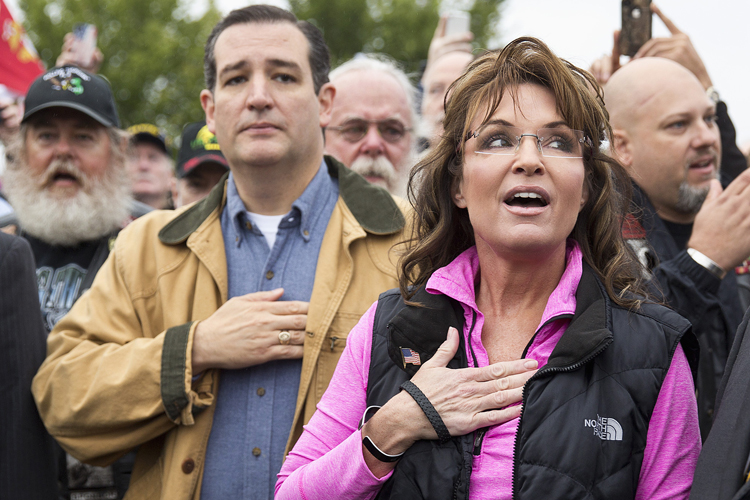There was a bit of rough news this morning for people who enjoy denying people access to health insurance based on garbage legal reasoning and willfully obtuse readings of statutes. The D.C. Circuit Court of Appeals agreed to an en banc rehearing of Halbig v. Burwell, the case that threatened to gut the Affordable Care Act by invalidating tax subsidies for people who purchase insurance through Healthcare.gov.
Back in July, two Republican-appointed judges on a three-judge panel of the D.C. Circuit Court gave fresh hope to Obamacare opponents when they ruled that one sloppily written snippet of language in the law clearly showed that its authors never intended to provide subsidies through the federal health exchanges. ACA supporters – and the people who actually wrote the law – said this was nuts: No one ever considered that notion during the drafting process, and the full text of the law clearly demonstrates the intent to provide subsidies regardless of who set up the exchange. Conservatives, meanwhile, got busy retconning the history of the ACA to claim that the Halbig argument was plainly evident from the start (even though they themselves had somehow failed to notice it at the time).
All of it smacked of desperation on the part of anti-Obamacare conservatives, as did their arguments to protect the flickering glimmer of hope offered by the D.C. Circuit Court panel. The White House had requested an en banc rehearing on the reasonable assumption that the full court would rule in favor of the administration. Halbig’s conservative supporters objected, saying that the case did not meet the “exceptional importance” standard that appeals courts adhere to when deciding whether to grant en banc rehearings.
I’ll let Scott Lemieux explain why that was so ridiculous:
To restate these arguments is to refute them. The panel’s holding would throw the American health insurance market into chaos. It would lead to avoidable suffering — and in some cases death — for a significant number of Americans. It would severely damage the most important social welfare legislation passed by Congress in several generations. If that isn’t a case of “exceptional importance,” what is?
The court clearly agreed that the case met the standard for exceptional importance, so the en banc hearing is going forward. This is bad news for Halbig fans for two reasons.
First, as noted above, the full D.C. Circuit Court is far more likely to rule in the White House’s favor. There are 11 judges on the court: four Republican appointees, and seven Democratic appointees. Three of those Democratic appointees were recently installed after filibuster reform ended an extended campaign of Republican obstructionism in the Senate to block President Obama’s judicial nominations. So if/when the Affordable Care Act survives this latest legal challenge, Obama might want to send Harry Reid a fruit basket.
Second, by agreeing to the en banc rehearing, the ruling by the three-judge panel is automatically vacated. This matters because the ultimate goal of the Halbig plaintiffs is to get the case before the Supreme Court and trust that the court’s conservative majority will defer to ideology and rule in their favor (a not unreasonable assumption). The Supreme Court, however, is more likely to agree to hear a case if the appeals courts are divided on it. Ian Millhiser of the Center for American Progress sums it up nicely:
Two hours after the divided DC Circuit panel released its opinion attempted to defund Obamacare, a unanimous panel of the Fourth Circuit upheld the health subsidies that are at issue in Halbig. Thus, so long as both decisions remained in effect, Supreme Court review was very likely. Now that the full DC Circuit has vacated the two Republican judges’ July judgement, Supreme Court review is much less likely.
This is why Halbig’s proponents were so adamant about avoiding an en banc ruling and taking the case straight to the high court. As of this moment, and assuming the full D.C. Circuit Court rules in favor of the administration, there is no conflict in the lower courts for the Supreme Court to resolve.
And that’s a good thing. The Halbig case has always been dependent on deliberate misunderstandings and pretty obvious untruths. It could only endure for so long, and hopefully it’s now begun its final collapse.

